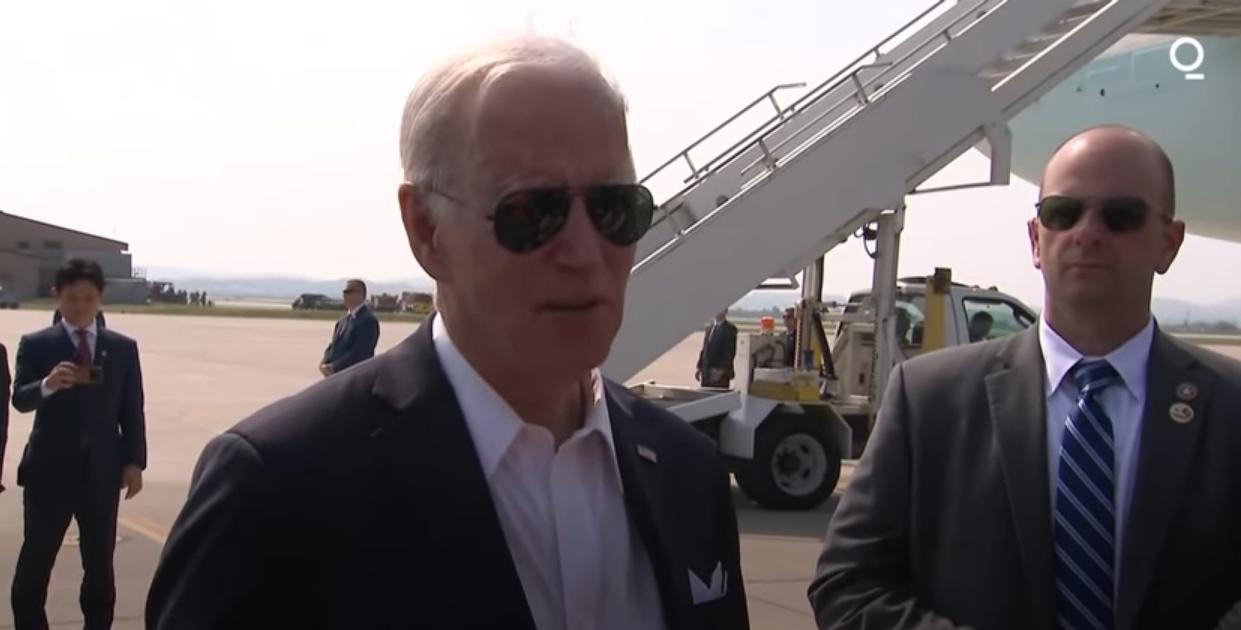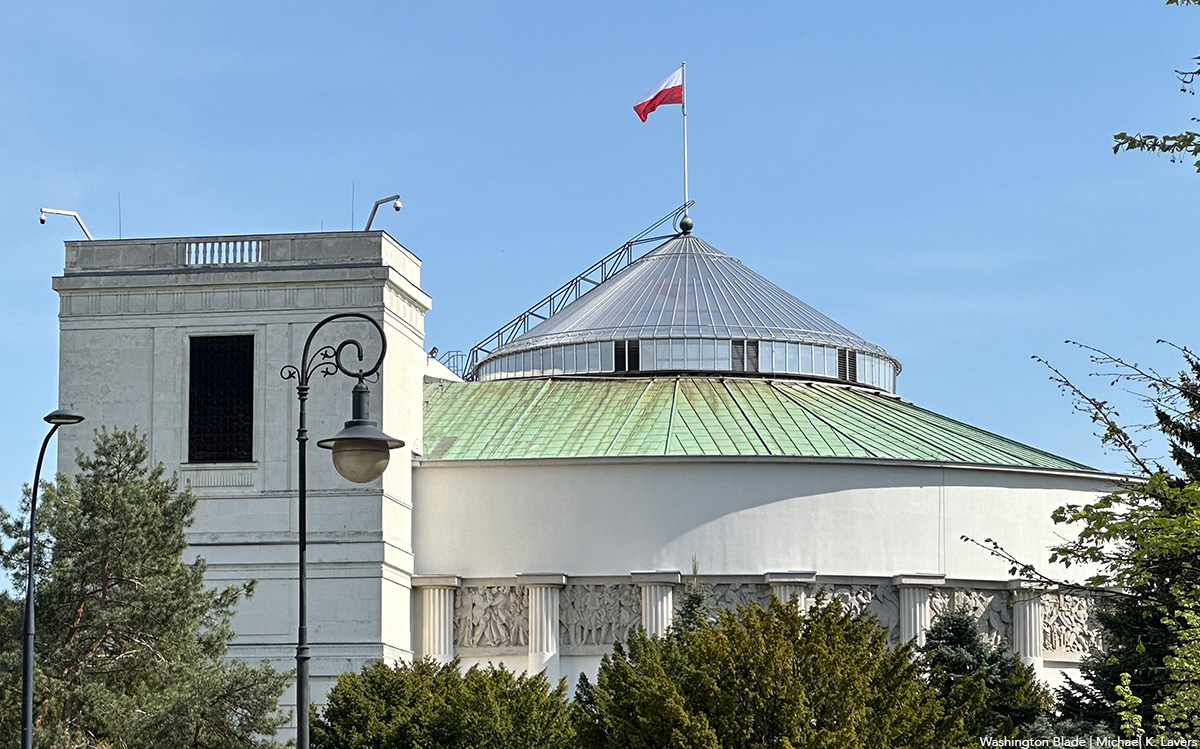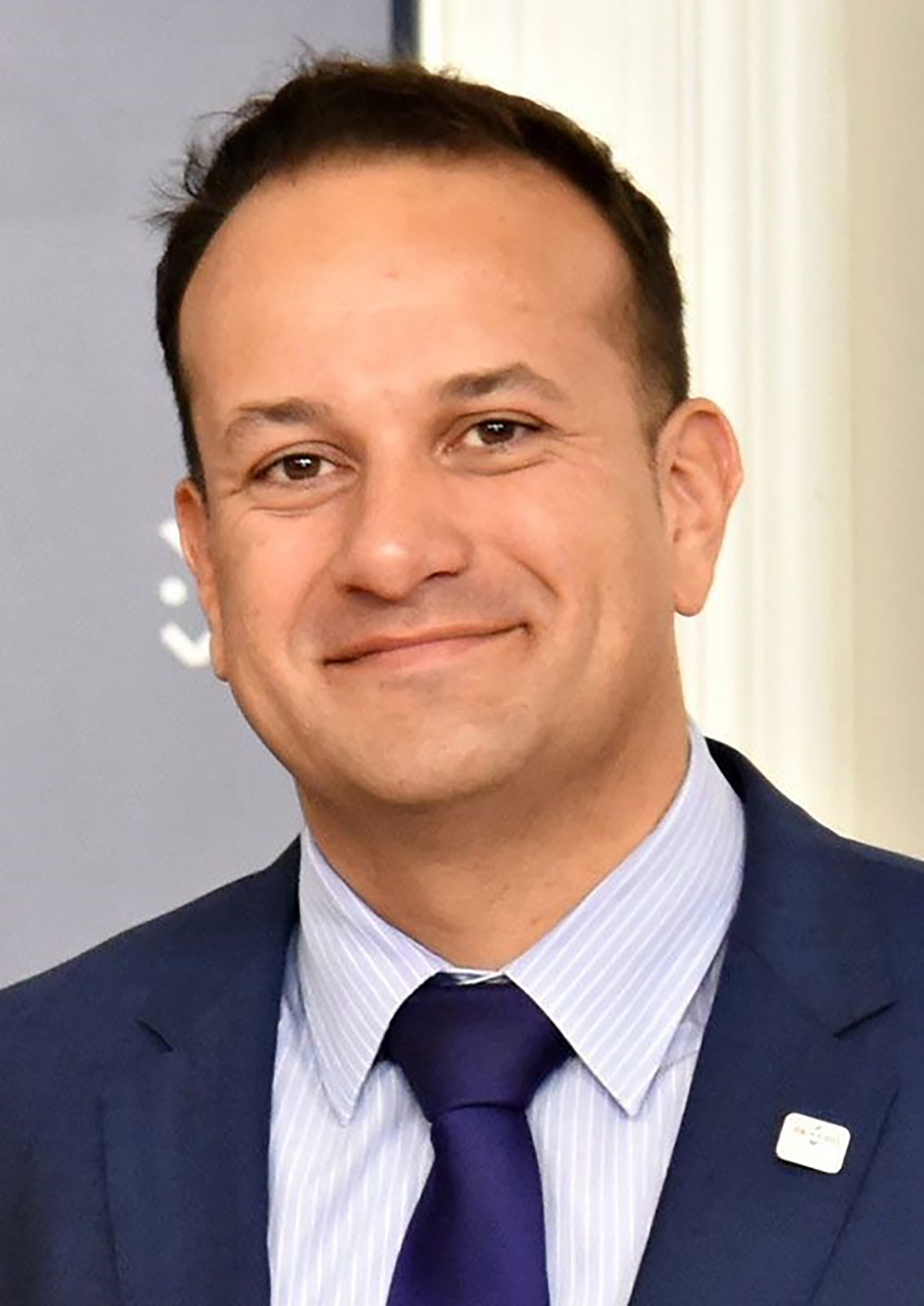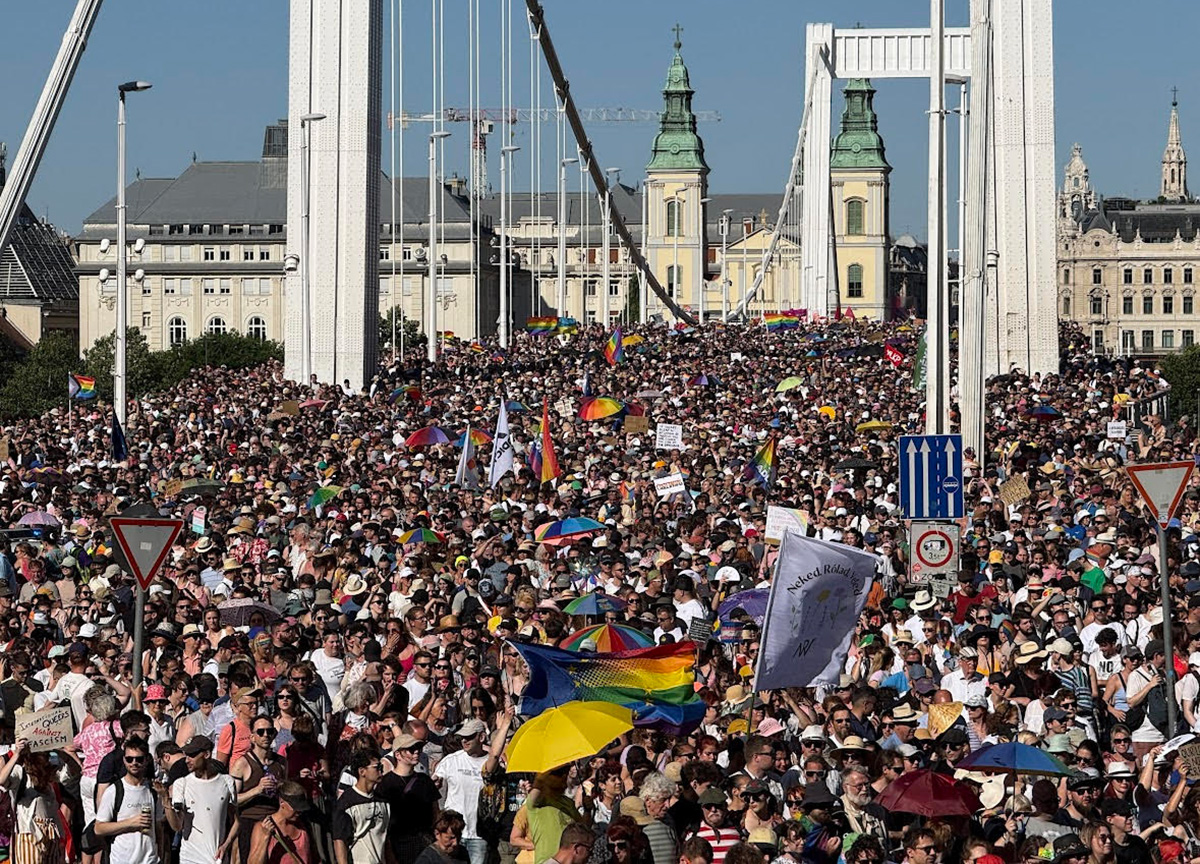European Union
100+ confirmed cases of monkeypox in 12 countries & spreading
A notable proportion of cases in the UK and across Europe have been found in gay & bisexual men health officials say

Dr. Hans Henri P. Kluge, the Regional Director of Europe for the World Health Organization (WHO) is warning that confirmed cases of monkeypox, which is most often seen in West and Central Africa, has escalated in Europe and elsewhere globally.
The United Kingdom, Spain, Portugal, Germany, Belgium, France, the Netherlands, Italy and Sweden – as well as the U.S., Canada and Australia are all reporting cases.
“The situation is evolving and WHO expects there will be more cases of monkeypox identified as surveillance expands in non-endemic countries,” Kluge said.
In Britain, the UK Health Security Agency’s Chief Medical Adviser Dr. Susan Hopkins noted in a statement released this past weekend:
“We anticipated that further cases would be detected through our active case finding with NHS services and heightened vigilance among healthcare professionals. We expect this increase to continue in the coming days and for more cases to be identified in the wider community. Alongside this we are receiving reports of further cases being identified in other countries globally.
Because the virus spreads through close contact, we are urging everyone to be aware of any unusual rashes or lesions and to contact National Health Service or a sexual health service if they have any concerns. Please contact clinics ahead of your visit and avoid close contact with others until you have been seen by a clinician.
A notable proportion of recent cases in the UK and Europe have been found in gay and bisexual men so we are particularly encouraging them to be alert to the symptoms and seek help if concerned.
Clinicians should be alert to any individual presenting with unusual rashes without a clear alternative diagnosis and should contact specialist services for advice,” she added.
Monkeypox, which can be transmitted by droplets and by close contact with infected skin lesions or contaminated materials, usually incubates in people for 6 to 13 days before symptoms appear.
UKHSA notes that this rare virus, in the same family as smallpox, has not previously been described as a sexually transmitted infection, but it it can be passed on through very close human contact, such as touching blood or body fluids or prolonged exposure to the respiratory droplets of an infected person. It can also been transmitted with clothing or linens used by an infected person.
In Washington D.C., Dr. Ashish Jha, the White House Covid-19 response coordinator, told ABC he wouldn’t be surprised if the US saw “a few more” cases of monkeypox in the coming days.
“But I feel like this is a virus we understand, we have vaccines against it, we have treatments against it, and it’s spread very differently than SARS-CoV-2” — the virus that causes Covid-19, Jha told ABC’s Martha Raddatz on Sunday.
Traveling in Asia, President Joe Biden told CNN’s Kaitlan Collins as he was preparing board Air Force One to depart South Korea on Sunday; “They haven’t told me the level of exposure yet, but it is something that everybody should be concerned about,” he said.
“We’re working on it hard to figure out what we do and what vaccine, if any, might be available for it. It is a concern in that if it were to spread it would be consequential. That’s all they told me,” the president added.
CNN reported that the US Centers for Disease Control and Prevention is evaluating whether a smallpox vaccine should be offered to health care workers treating monkeypox patients and other people who may be at “high risk” for exposure to monkeypox.
UK Health Security Agency’s Hopkins cautions that people should be aware of monkeypox — but that the risk to the general population “remains extremely low at the moment.”
“I think people need to be alert to it,” said Hopkins. “We really want clinicians to be alert to it and send the test if they’re concerned.”
Hopkins also said based on reports from Africa, the UKHSA knows certain people are “much more at risk of severe disease, particularly immunosuppressed individuals or young children.
“While there is “no direct vaccine for monkeypox,” she said, “we are using a form of smallpox vaccine or third-generation smallpox vaccine that’s safe on individuals who are contacts of cases.”
Symptoms
Initial symptoms of monkeypox include fever, headache, muscle aches, backache, swollen lymph nodes, chills and exhaustion. A rash can develop, often beginning on the face, then spreading to other parts of the body including the genitals.
The rash changes and goes through different stages, and can look like chickenpox or syphilis, before finally forming a scab, which later falls off.
“A feature that distinguishes infection with monkeypox from that of smallpox is the development of swollen lymph nodes,” the CDC said.
Biden Comments On Monkeypox As He Leaves South Korea:
European Union
European Parliament resolution backs ‘full recognition of trans women as women’
Non-binding document outlines UN Commission on the Status of Women priorities

The European Parliament on Feb. 11 adopted a transgender-inclusive resolution ahead of next month’s U.N. Commission on the Status of Women meeting.
The resolution, which details the European Union’s priorities ahead of the meeting, specifically calls for “the full recognition of trans women as women.”
“Their inclusion is essential for the effectiveness of any gender-equality and anti-violence policies; call for recognition of and equal access for trans women to protection and support services,” reads the resolution that Erin in the Morning details.
The resolution, which is non-binding, passed by a 340-141 vote margin. Sixty-eight MPs abstained.
The commission will meet in New York from March 10-21.
A sweeping executive order that President Donald Trump signed shortly after he took office for a second time on Jan. 20, 2025, said the federal government’s “official policy” is “there are only two genders, male and female.” The Trump-Vance administration has withdrawn the U.S. from the U.N. LGBTI Core Group, a group of U.N. member states that have pledged to support LGBTQ and intersex rights, and dozens of other U.N. entities.
European Union
Top EU court: Poland must recognize same-sex marriage from other European countries
Activists celebrate landmark decision

The European Union’s top court on Tuesday ruled member states must recognize same-sex marriages legally performed in other member states.
The EU Court of Justice in Luxembourg ruled in favor of a couple who challenged Poland’s refusal to recognize their German marriage.
ILGA-Europe notes Polish authorities refused “to transcribe into the civil register a certificate of same-sex marriage concluded” in Germany “between a Polish citizen and a Polish-German citizen … on the grounds that Polish law does not allow same-sex marriage.”
The couple who lives in Poland brought their case to Polish courts. The Polish Supreme Administrative Court referred it to the EU Court of Justice.
“Today’s ruling of the Court of Justice of the EU is of key importance not only for the couple involved in the case, but also for the entire LGBT+ community in Poland,” said the Campaign Against Homophobia, a Polish LGBTQ and intersex rights group, in response to the decision. “It clearly states that refusing to transcribe a marriage concluded abroad is incompatible with EU law. Therefore, regardless of the absence of registered partnerships and marriage equality, Poland must ensure the possibility of effective transcription.”
“With this judgment, the CJEU clearly states that the recognition of marriage status is key to enjoying EU citizens’ fundamental right to freedom of movement across the EU,” added ILGA-Europe Advocacy Director Katrin Hugendubel. “The EC now needs to ensure that this judgment is implemented quickly by the Polish state and across the EU.”
Sixteen EU countries — Ireland, Portugal, Spain, France, Luxembourg, Belgium, the Netherlands, Germany, Denmark, Austria, Slovenia, Malta, Greece, Sweden, Finland, and Estonia — have extended full marriage rights to same-sex couples. Poland, Romania, Bulgaria, and Slovakia are the EU countries with no legal recognition of same-sex couples.
European Union
Former Irish prime minister: Europe is leader in global LGBTQ rights movement
Leo Varadkar in 2017 became Ireland’s first gay head of government.

CAMBRIDGE, Mass. — Former Irish Prime Minister Leo Varadkar earlier this month said Europe is now at the forefront of the global LGBTQ and intersex rights movement.
“In many ways, Europe is the light,” he told the Washington Blade on Oct. 20 during an interview that took place near Harvard University. “It’s holding up against anti-LGBTQ policies.”
Varadkar, 46, in 2017 became Ireland’s first gay prime minister.
He stepped down in 2020 after his center-right party, Fine Gael, lost 15 parliament seats in the general election, but he remained in the government. Varadkar, whose father was born in Mumbai, in 2022 once again became prime minister.
Varadkar in 2024 resigned and stepped down as Fine Gael’s leader.
The Harvard Kennedy School’s Carr-Ryan Center for Human Rights on Oct. 16 announced Varadkar’s appointment as a senior fellow for its Global LGBTQI+ Human Rights Program for the 2025-2026 academic year. He — along with former Massachusetts Gov. Deval Patrick and former acting Treasury Secretary David Lebryk — are also Hauser Leaders at the Harvard Kennedy School’s Center for Public Leadership for this year’s fall semester.
Varadkar during his fellowship will focus on LGBTQ and intersex rights within the EU.
He sat down with the Blade on the same day he spoke at Harvard’s Weatherhead Center for International Affairs. Varadkar on Tuesday participated in an event in Brussels that focused on LGBTQ and intersex rights in the EU.
New EU LGBTQ strategy ‘not wonderful, but at least it was done’
The European Commission on Oct. 8 released an LGBTQ and intersex rights strategy that focuses on three specific areas:
- Protecting LGBTIQ+ people (from hate-motivated harassment and violence, from discrimination, from conversion practices)
- Empowering LGBTIQ+ people through (equality bodies, rainbow families, promoting inclusion at workplace)
- Engaging society to advance LGBTIQ+ equality by (calling on all EU countries to adopt national strategies, improving the data collection and analysis, launching an ‘LGBTIQ+ Policy Forum’)
“It’s not wonderful, but at least it was done,” said Varadkar. “You won’t see that done in China, Russia, or even the United States, unfortunately.”
“Europe needs to hold the line, but also we want to focus on places where there is backsliding, like Bulgaria, like Slovakia,” he added, while also referring to the Czech Republic and Hungary.
Varadkar is among those who participated in this year’s Budapest Pride, even though Hungarian Prime Minister Viktor Orbán’s government banned public LGBTQ events.
“It wasn’t just a regular Pride protest, and in Eastern Europe Pride is still a protest, very much so … they’re met by football hooligans, and police who aren’t necessarily there to support there to protect them,” Varadkar told the Blade. “This time, everyone joined in: students, unions, families, even more moderate political forces that might not always want to be associated with the LGBT cause, but it became about freedom of expression and became about free speech, and that’s why there was such a big turnout.”

Varadkar since he left office has also traveled to Bulgaria to support the country’s LGBTQ activists. Varadkar also spoke to the Blade about Russia and the Kremlin’s efforts to “influence and destabilize European societies.”
Russia in 2022 launched its war against Ukraine.
“One of the ways they do that is through election interference and misinformation online, and they’ve identified this as an issue that can divide European societies,” said Varadkar, specifically referring to the Russian government’s opposition to LGBTQ rights and its overall human rights record. “[Russian President Vladimir] Putin has very much embraced the idea of traditional values and Russian Orthodox Christianity, and he’s using that as a wedge issue in Central and Eastern Europe.”
“So as ever our fight is part of a bigger fight that’s linked to things like democracy, human rights, academic freedom, press freedom,” added Varadkar. “We’re on the front line in the same battle, in my view.”
He also said the EU needs to be pragmatic in how it responds to Orbán and other anti-LGBTQ leaders.
“[The EU] is in a bit of a dilemma as to how it acts, how it does withdraw funding sometimes from countries if they’re in breach of the standards around the rule of law,” said Varadkar.
The European Commission in 2021 threatened to withhold funding to local and regional governments in Poland that declared themselves “LGBT-free zones.” The European Commission in 2022 sued Hungary over a law that a press release notes “singles out and targets content that ‘promotes or portrays’ what it refers to as ‘divergence from self-identity corresponding to sex at birth, sex change or homosexuality’ for individuals under 18.”
“Some of the more nationalist and populist leaders in Central and Eastern Europe; there’s nothing they want more than a fight with Brussels, these Western European elites … trying to impose their ideology on our country,” Varadkar told the Blade. “So that’s why I think the European Union has to be smart as to how it acts.”
European Commission President Ursula von der Leyen is among those who condemned the Budapest Pride ban. Varadkar told the Blade he “was disappointed there wasn’t more action” from Brussels “in relation to why Budapest Pride was being banned.”
Varadkar praises Sarah McBride
Ireland is among the countries that have issued travel advisories for transgender and nonbinary people who are planning to visit the U.S. since the Trump-Vance administration took office.
President Donald Trump shortly after his inauguration issued a sweeping executive order — Defending Women from Gender Ideology Extremism and Restoring Biological Truth to the Federal Government — that, among other things, bans the State Department from issuing passports with “X” gender markers. Trump in his inaugural speech also said the federal government will only recognize two genders: male and female.
Trump in February issued another executive order that bans trans women and girls from female sports teams. U.S. Citizenship and Immigration Services in August announced it will ensure “male aliens seeking immigration benefits aren’t coming to the U.S. to participate in women’s sports.”
The promotion of LGBTQ and intersex rights abroad was a cornerstone of the Biden-Harris administration’s overall foreign policy.
Secretary of State Marco Rubio on Jan. 24 directed State Department personnel to stop nearly all U.S. foreign aid spending for 90 days in response to an executive order that Trump signed after his inauguration. Rubio later issued a waiver that allowed PEPFAR and other “life-saving humanitarian assistance” programs to continue operating after bowing to pressure, but the Blade has reported PEPFAR-funded programs in Kenya and other African countries have been forced to suspend services and even shut down because of gaps in U.S. funding.
Rubio in March announced 83 percent of U.S. Agency for International Development contacts had been cancelled, and the State Department would administer the remaining programs. USAID officially shut down on July 1.
The global LGBTQ and intersex rights movement has lost more than an estimated $50 million in funding since the Trump-Vance administration took office.
“It has an impact, particularly on organizations in the Global South and in Central and Eastern Europe,” said Varadkar.

Varadkar told the Blade he is working with the Global Development Project and other philanthropic organizations to “fill some of the gap” in funding.
He said the current situation “demonstrates why we should never be too dependent on any government or corporations.” Varadkar also spoke more broadly about the Trump-Vance administration and its policies.
“I’m a guest in this country. I’m not here to tell you what to do. The American people decide who the president is. I don’t, but I am genuinely disappointed to see the backsliding on human rights and academic freedom and free speech here in America,” said Varadkar.
“What do I associate America with? I associate it with being one of the homes of democracy and helping to spread it around the world. I associate it with free speech, sometimes even saying any crazy thing you want. And I associate it with as being the birthplace of the LGBT liberation movement. I think of Stonewall. I think of the Castro,” he added. “It all started here, long before anyone in Ireland could ever imagine homosexual acts being decriminalized, let alone a gay person being the head of government.”
“To me this is where it all started,” said Varadkar. “It’s particularly worrying that things appear to be going in the wrong direction here, and that has impacts in the rest of the world too, that Americans might be very aware of.”
Varadkar also said he admires U.S. Rep. Sarah McBride (D-Del.), who in 2024 became the first openly trans person elected to Congress.
“She’s there for everyone in Delaware, and yes, she is trans too,” Varadkar told the Blade. “She’s willing to be a leader, but I think as LGBT leaders, we should make sure that our causes are part of the wider welfare and society and not separate.”




















